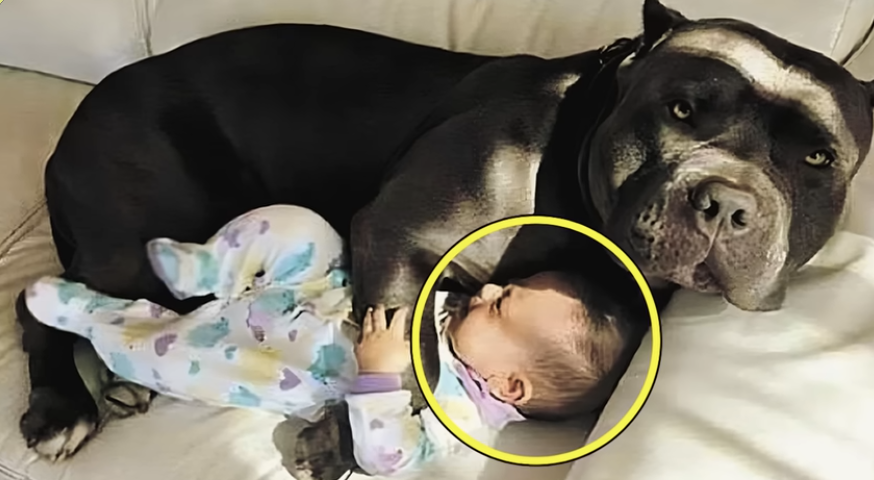Researchers Release a New List of Common OTC Medications That Are Causing a High Risk of Dementia!

image via – shutterstock.com
Many people think nothing of taking “over-the-counter” drugs on a regular basis, including non-prescription sleep aids and the antihistamine Benadryl (diphenhydramine). While previous research has found a link between prescription “anticholinergic drugs” and dementia, a new research study found a strong link between dosage strength of over-the counter drugs and the onset of dementia in people who had no signs prior to the study.
The research done at the University of Washington School of Pharmacy in Seattle, reported their findings in “JAMA Internal Medicine” in January. Anticholinergics block the neurotransmitter acetylcholine from being transmitted to the brain, and it is thought that this effect in medications containing this, contributes to the onset of dementia.
As you will hear in the video below, the study followed people, aged 65 and over, for 10 years. It was found, for instance, that taking 50mg of Benadryl and other first generation antihistamines daily for over 3 years or 25 mg daily for over 6 years, were at the most significant risk for dementia.
The most commonly used medications found in the 800 people who developed dementia (out of 3500) in this study were: Benadryl, Chlor-Trimeton (and other first generation anti-histamines); prescription tricyclic anti-depressants (doxepin or Sinequan) and meds for bladder control (oxybutinin, Ditropan).
For younger people on a constant dose of ANTICHOLINERGIC DRUGS, this study should serve as a warning, as it is unknown yet whether such use could cause early onset dementia. It is not advised that anyone discontinue any medication without speaking to their health care professional.
However, these results as well as others named in the VIDEO below, is important information for those on drugs that put them at higher risk for dementia. There are alternative drugs that are available that your doctor can discuss with you.
Watch the video below for further information:
Please SHARE This With Family and Friends
She Thought She Had A Really Bad Eye Infection. But The Truth Is Way More Scary!
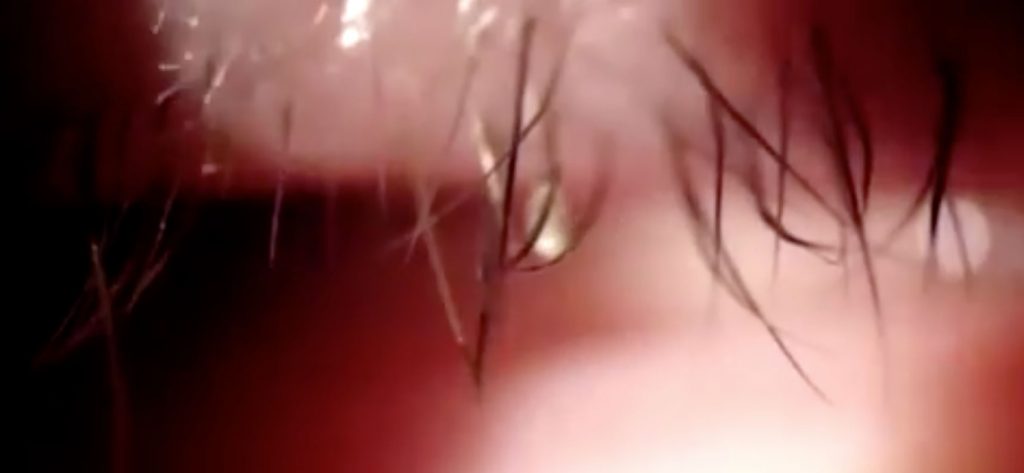
A woman had been plagued by an uncomfortable and itchy sensation in her eye for several days so she finally decided to visit an eye doctor. He found something quite unusual and very uncommon; eye lice in her lashes. The woman, Ms. Zhang, hails from Northeast China and had suffered from a stroke two days prior to seeking medical help for her eye problem.
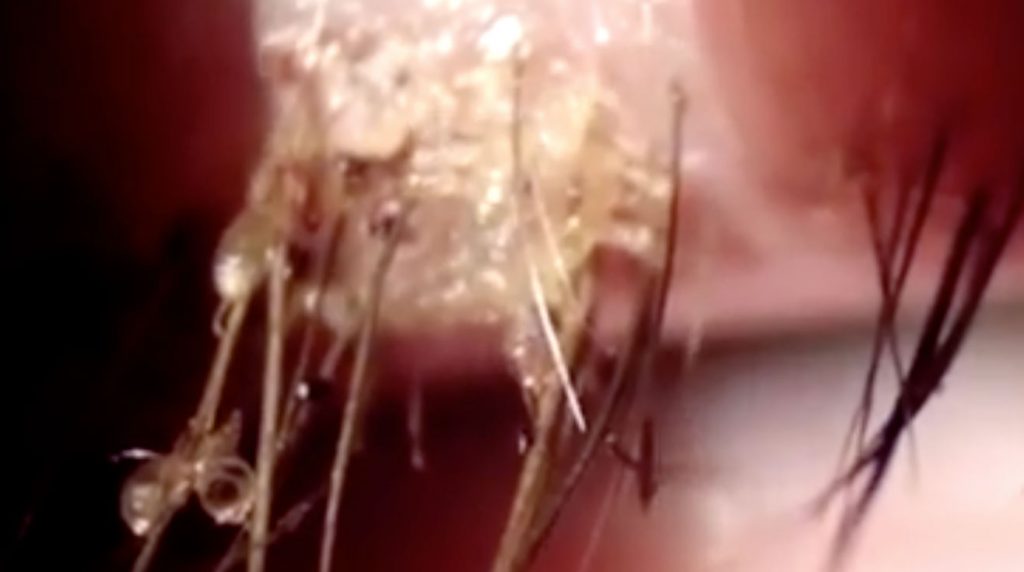
She’d had an annoying, itchy problem with her eyes for some time and ignored it until it became unbearable. At her request, her son inspected her eye and he immediately noticed a few extremely tiny, crab-like bugs crawling around on her lashes. Her eye doctor confirmed and diagnosed her eye lice problem and promptly removed them with a pair of fine forceps. When it was all done, he had pulled over twenty of the tiny parasites off her eyelid.
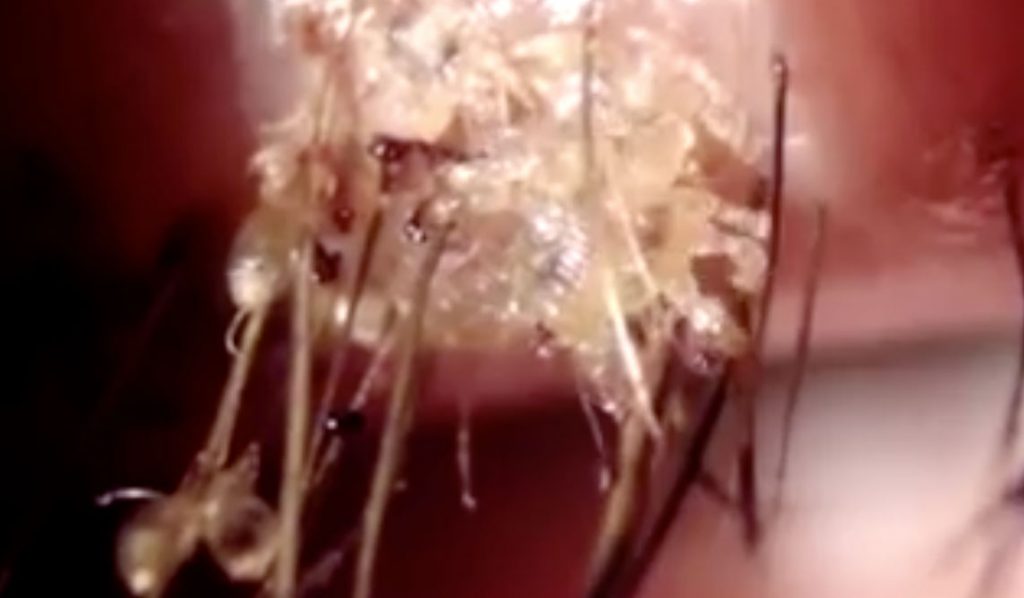
While most people know about head lice, the tiny insects that live on the scalp, few people are aware of eye lice. Eye lice are almost microscopic, white parasites that live in the eyebrows and eyelashes of people where they feed off of blood and skin.
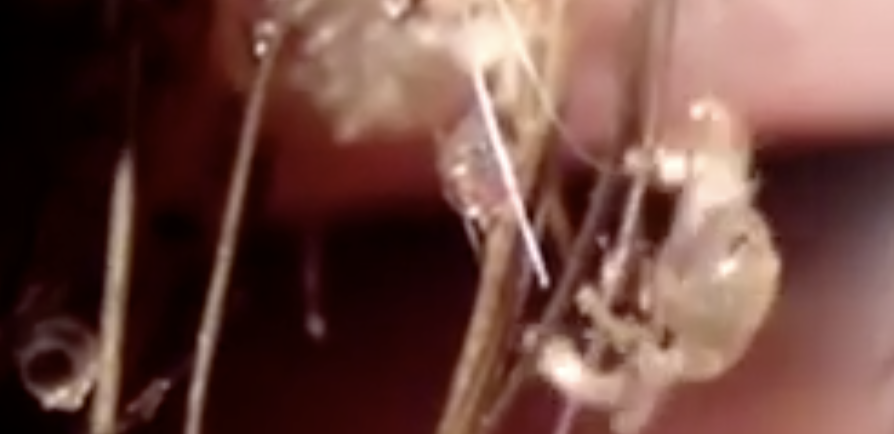
Adults will attach themselves to the skin around a lash, lay eggs which are called nits, and 6-10 days later they hatch. After 15 days the nits are full grown and they start to lay more eggs, thus causing an infestation. Symptoms of eye lice include sudden and extreme itchiness on your eyelids, tearing, feeling tired or ill, small red spots from lice bites, eye redness, and conjunctivitis.

To treat the problem, a doctor has to remove them individually and often will prescribe an antibiotic which suffocates the lice. Harsh, commercial chemicals are not used since they can easily hurt or damage sensitive eyes. This type of lice is very uncommon and most often stems from contact with either pets or eyelash extensions. Hopefully, this is the only case of it you will ever see in your lifetime, it looks really gross and painful.
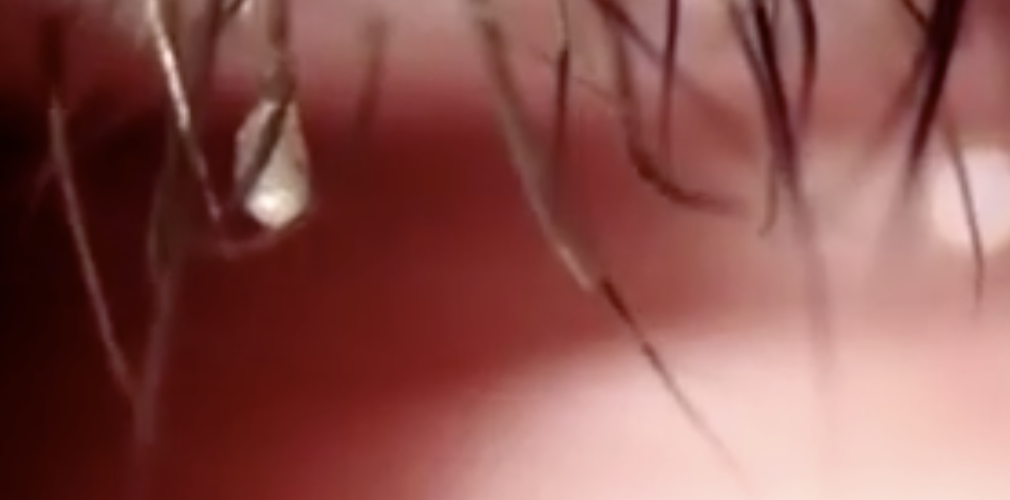
Please Share With Friends On Facebook




